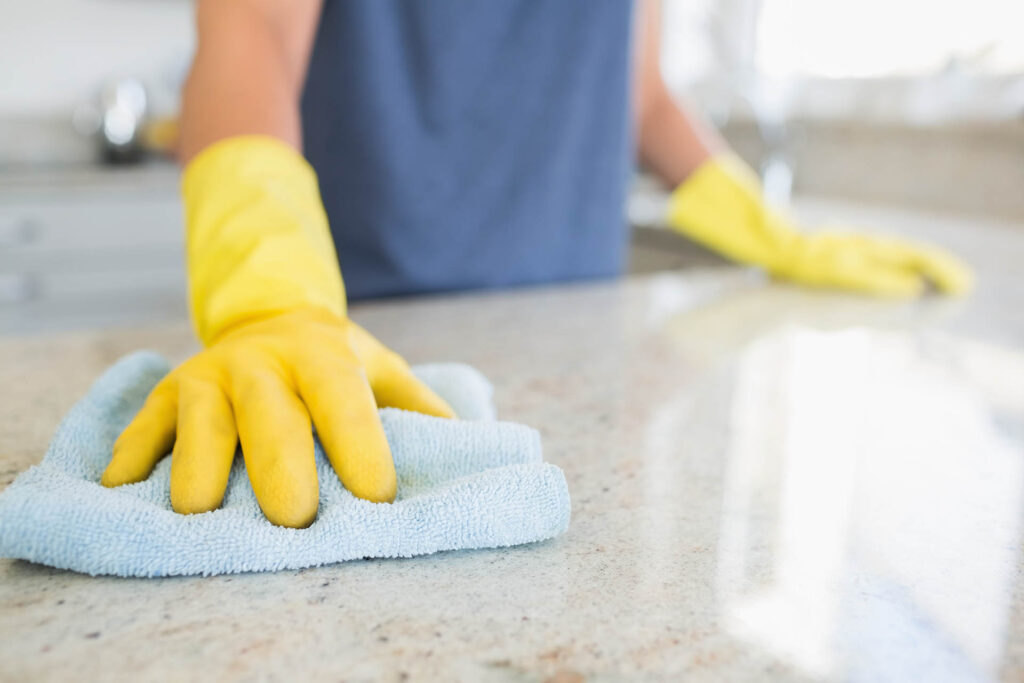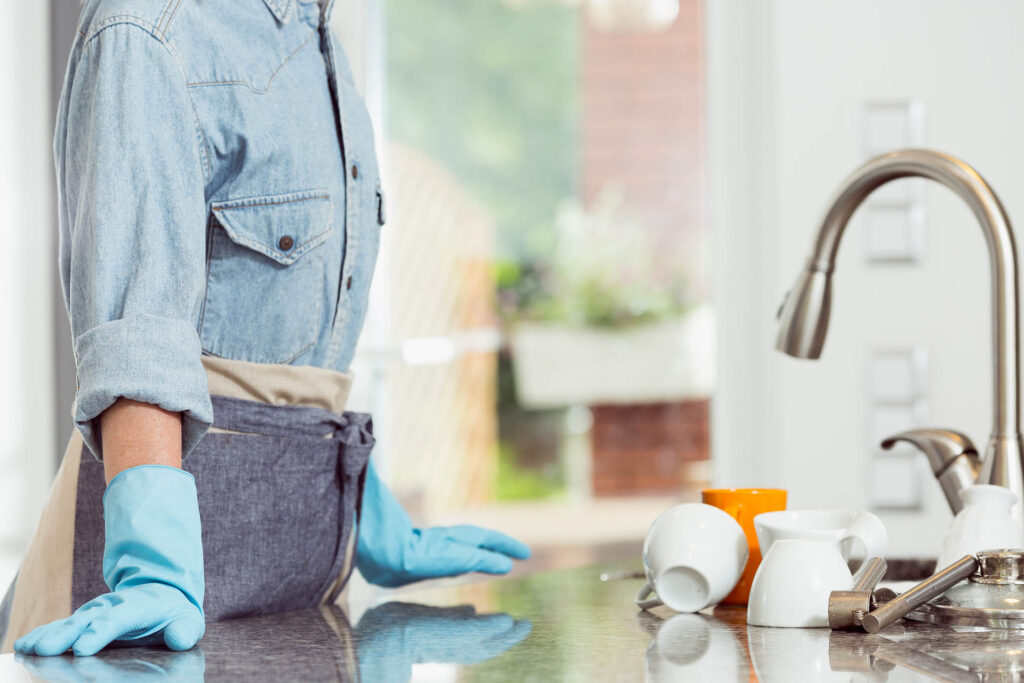Care and Maintenance
Get to Know Your Natural Stone
The first step in proper stone care and maintenance is to understand your stone’s geological classification and composition. This information will help you to identify what cleaning products to use and how best to care for your natural stone.
Natural stone is categorized into three basic geological classifications by their respective formation processes: Sedimentary, Metamorphic and Igneous. Additionally, stones in each category can be either Calcareous or Siliceous.
Calcareous stone is composed mainly of calcium carbonate, a chemical compound commonly found in natural stone, shells and pearls. Calcium carbonate is sensitive to acidic solutions, so mild, non-acidic cleaners are recommended.
Siliceous stone, as the term implies, is one composed primarily of silicates, such as quartz, feldspar, and mica. A siliceous stone is generally resistant to most acids found in kitchen settings, although acidic cleaners are still not recommended, as these stones may contain trace levels of minerals that are sensitive to acids.
The following chart will be a helpful guide:



Easy Natural Stone Care Tips
To get the longest life and preserve the beauty of your natural stone, follow these simple tips:
Coasters: Use coasters under all glasses, particularly those containing alcohol or citrus juices.
Trivets: While many stones can withstand heat, the use of trivets or mats is recommended.
Spills: Blot the spill with a paper towel immediately. Don’t wipe the area, it will spread the spill. Flush the area with water and mild soap and rinse several times. Dry the area thoroughly with a soft cloth. Repeat as necessary.
Cleaning:
- Clean stone surfaces with a neutral cleaner, stone soap, or a mild liquid dishwashing detergent and warm water.
- Similar to any item cleaned in your home, an excessive concentration of cleaner or soap may leave a film and cause streaks. Follow manufacturer recommendations.
- Rinse the surface thoroughly after washing with the soap solution and dry with a soft cloth.
- Change the rinse water frequently.
Cleaning Products:
- Many suppliers offer products used for stone cleaning.
- Products containing lemon, vinegar or other acids may dull or etch calcareous stones.
- Scouring powders or creams often contain abrasives that may scratch certain stones.
- Many commercially available rust removers (laundry rust stain removers, toilet bowl cleaners) contain trace levels of hydrofluoric acid (HF). This acid attacks silicates in addition to other minerals. All stones, including granite and quartzite, will be attacked if exposed to HF.
- Do not mix ammonia and bleach. This combination creates a toxic and lethal gas.
Natural Stone is Easy to Clean and Maintain!
https://www.naturalstoneinstitute.org/consumers/care/
Call us for problems that appear too difficult to handle. (208) 772-9096

